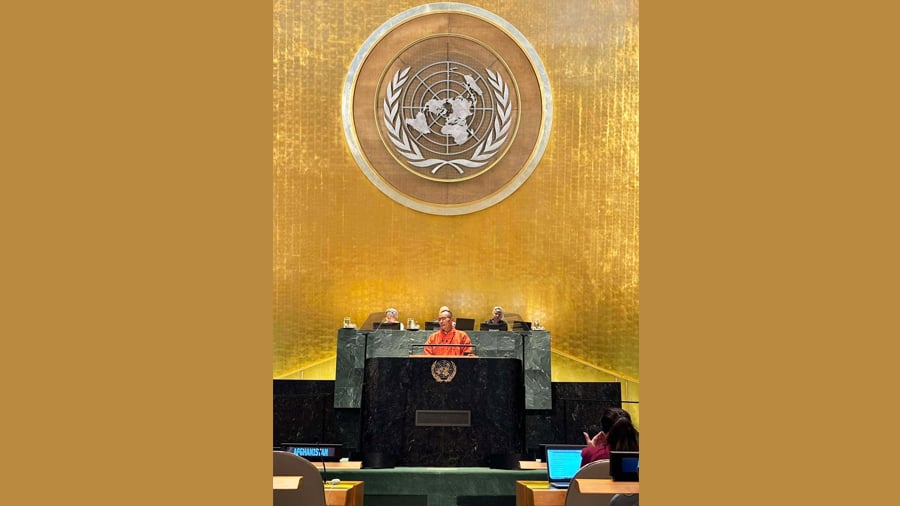
In a bold call for reform, Prime Minister Tshering Tobgay, addressing the 79th United Nations General Assembly, urged for changes to the UN Security Council, calling it “a relic of the past” that must reflect modern geopolitical realities. The prime minister backed India and Japan’s eligibility for permanent seats on the Security Council, citing their economic leadership and contributions to global peace and development.
Addressing the gathering of government heads from the UN member countries, Prime Minister Tshering Tobgay said that the United Nations must evolve to meet the realities of today’s world.
Calling the UN Security Council a “relic of the past,” the prime minister said that the world needs a Council that reflects the current geopolitical, economic landscape, and social realities.
“Bhutan has long advocated for the reform of the Security Council to make it more representative and effective.”
The UN Security Council is a 15-member body responsible for maintaining international peace and security, with five permanent members holding veto power and ten rotating non-permanent members.
“India, with its significant economic growth and population and leadership of the Global South, deserves a permanent seat at the Security Council. Similarly, Japan, a leading donor and peacebuilder, warrants permanent membership.”
The prime minister also addressed the challenges facing Least Developed Countries (LDCs), noting that while Bhutan recently graduated from the LDC category, 46 nations remain.
He called for intensified global efforts to help these countries achieve similar progress.
“It is unacceptable that over 50 years have passed, and only seven nations have graduated. We must address poverty and inequality with a renewed sense of urgency.”
While reflecting on Bhutan’s successful LDC graduation, the prime minister focused on the need to sustain this progress by addressing youth unemployment and economic challenges.
He highlighted the importance of international cooperation to ensure that no LDC nation is left behind.
Meanwhile, Prime Minister Tshering Tobgay also introduced the Gelephu Mindfulness City as a sustainable urban space that fosters both human and environmental well-being.
He invited thought leaders, innovators, and investors to join Bhutan in building the city as a model of peace, harmony, and progress that others can follow.
Sherub Dorji








